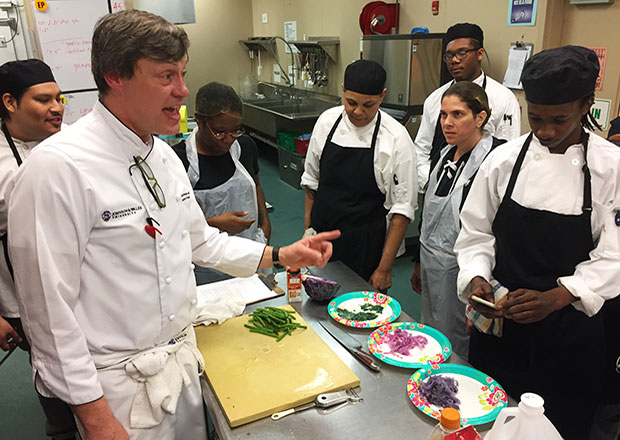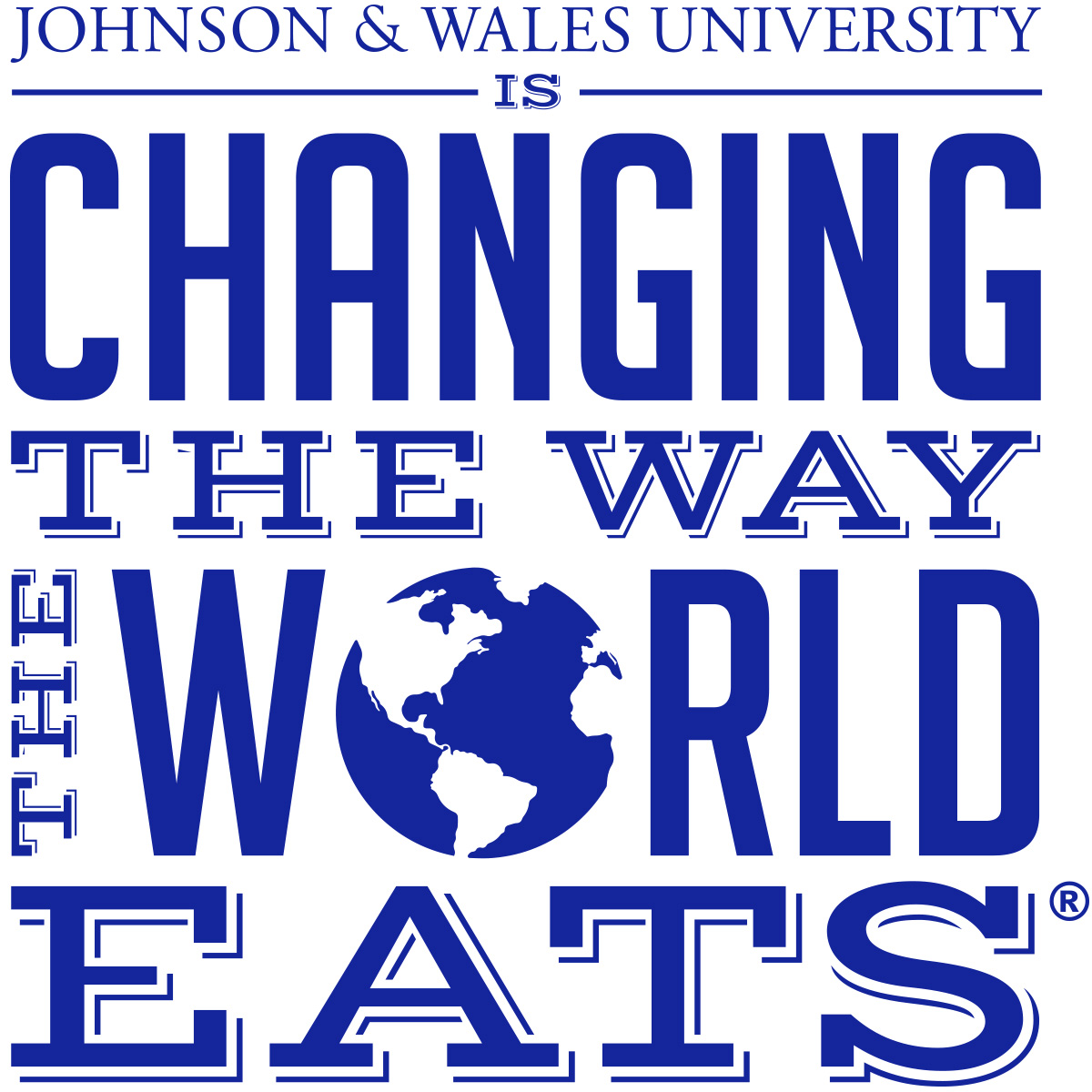Skills Lead to Jobs
By Chef Rollie Wesen '14
April 2017
Nothing changes the way the world eats like teaching someone how to cook. That's one of the reasons I volunteer at the Rhode Island Food Bank Community Kitchen regularly as part of their culinary arts training program. While the Food Bank’s mission is to reduce hunger, the Community Kitchen teaches cooking skills to economically disadvantaged adults who are willing to work, but lack skills needed to enter the workforce. The 14-week course prepares students for entry-level food service industry jobs through the teaching of food safety, knife skills and professional communication.
In addition, students find their culinary skills empowering. Technical cooking skills prepare them for the workforce and provide incentives for them to prepare fresh, healthy foods at home. For most, they've relied on the less expensive processed foods available on the market to feed themselves and their families. Once they gain cooking skills, their diets invariably shift away from foods heavy in sugars, salt and fat and toward freshly prepared meats, vegetables, grains and starches.
I've seen first-hand the personal growth and empowerment that is developed at the Community Kitchen. To put on a chef coat is an equalizing act. For aspiring professionals, if they have some skills but more importantly a desire to work hard and learn, they can be successful in a professional kitchen. Once you put on the chef coat, no one cares where you came from, or who you worship, or the color of your skin – all that matters is ‘can you do the job? There are many opportunities in the food service industry for jobs, careers, and personal growth. By offering its clients employable skills, the community kitchens are a win for everyone.
